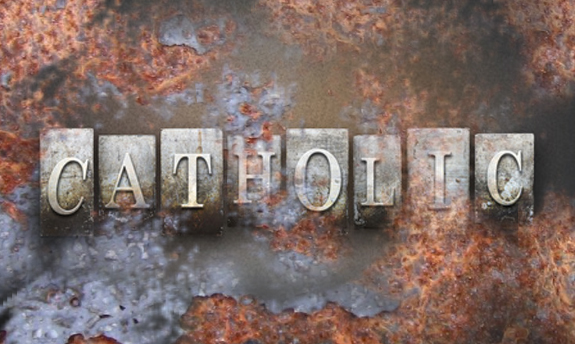

In the late 1990s, I read a former Anglican’s conversion story. He said his journey to Catholicism began when he realized the person standing next to him during services, who he knew well, meant the exact opposite of what he did when they recited the Nicene Creed together. Yet both could be Anglicans in good standing.
For instance, his neighbor believed we say “the Father almighty” and not “the Mother almighty” because the Church is sexist and patriarchal.
But he understood God Himself had revealed Himself as Father, and knew we couldn’t dismiss the theological and philosophical reasons behind this as easily as his neighbor assumed.
I’m increasingly seeing this phenomenon in Catholicism.
For instance, last month I spent time with several diocesan communications directors.
From them I learned a scandal is brewing with a prominent Catholic agency. The agency does great work, so its proponents say ignore the fact that a prominent executive is openly flouting and publicly opposing Church teaching.
Others disagree, saying if we’re going to call teachers minister and hold them accountable to what is in the Catechism, why shouldn’t we do so with those whose ministerial role is much more explicit? One person called ignoring the situation a slap in Christ’s face.
Later over drinks with the aforementioned directors, one mentioned Congress had passed a bill outlawing abortion after 20 weeks. Since medical experts are considering lowering the official age at which a preemie can live outside the womb from 24 to 22 weeks, it seems like the natural progression.
Another colleague, however, was aghast. “Where will it end?!” she exclaimed, horrified lawmakers could do such a thing. In my mind, I thought, “Uh, hopefully with a more robust Culture of Life?”
Even the first woman indicated she didn’t necessarily favor this law and almost apologetically mentioned how she was the most moderate Republican possible. “I even voted for Obama!” she exclaimed.
As someone for whom reading Evangelium Vitae by John Paul II was a consciousness altering event, their comments really made me sad. Here are people who work for the Church, but in their personal lives they do not witness to the most fundamental right of all: life. After all if you don’t have that, the right—putative or otherwise—to education, clean water/air, health care, housing, etc., becomes absolutely moot, doesn’t it?
A Jesuit priest recently interviewed people about San Francisco Archbishop Salvatore Cordileone’s new teachers contract. He said an opponent of the new contract, a man, spoke of “mercy.” A supporter of the archbishop’s efforts, a woman, spoke of “mercy.” Both of them understood the concept in completely different ways.
This May, Germany’s hierarchy said it had jettisoned all moral restrictions on its employees. The German bishops are now effectively saying the Fathers at next October’s Ordinary Synod on the Family should follow their lead.
As George Weigel recently wrote, though, Their Graces have essentially made a “confession of catechetical disaster and pastoral failure on a nationwide scale, to which [they have] no response save to urge others down the path that has led Catholicism in Germany into profound incoherence.”
Or as I would put it, the German episcopate has effectively said, “Our situation is hopeless, so we’ve given up on authentically proclaiming Tradition, Scripture, and Church teaching. You should, too.” It reminds me of those who say Marxism wasn’t bad, it was simply implemented by bad people. That is, they have missed the point and won’t admit where the real problems—or answers—lie.
Read the Second Vatican Council documents. Nowhere do they encourage giving into the spirit of the age. Rather they encourage the Church to engage the world but not be consumed by it. And the purpose of being in the world? To transform it in the image of the Church, the Bride of Christ, of Christ Himself.
Almost 50 years after Vatican II’s closing, we still don’t know what Catholics will choose: the Spirit of the Lord Who is Truth, or the spirit of the age. The Spirit of the Lord leads to faith and life. That of the world leads to catechetical chaos and death of faith. History makes this so evident. And yet as evidenced by a recent Pew survey, fewer and fewer people are choosing faith and life.
This puts Christ’s question in Luke 18:8 in an interesting light, doesn’t it? “When the Son of Man comes, will He find faith on earth?”
If you value the news and views Catholic World Report provides, please consider donating to support our efforts. Your contribution will help us continue to make CWR available to all readers worldwide for free, without a subscription. Thank you for your generosity!
Click here for more information on donating to CWR. Click here to sign up for our newsletter.

